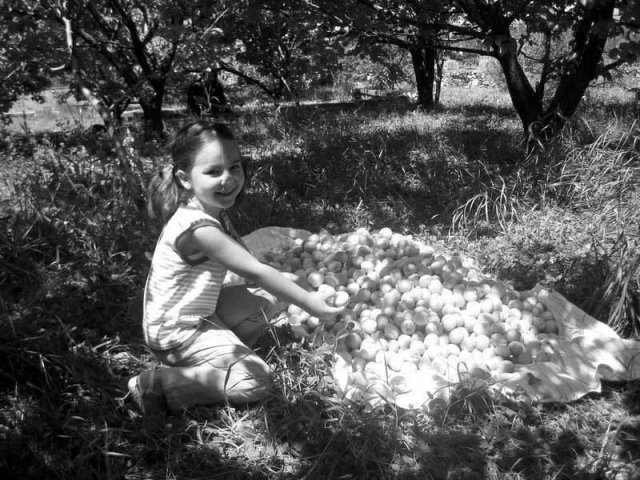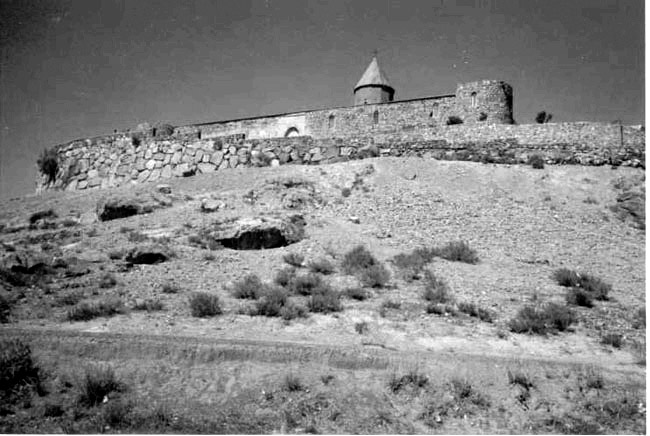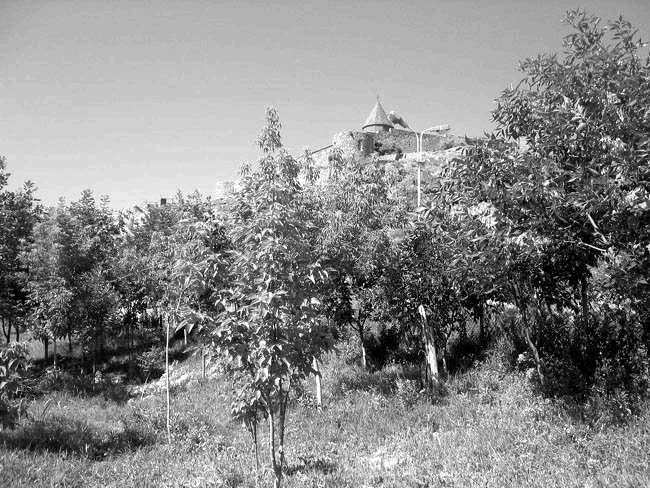 ATP is Planting Armenia’s Future
ATP is Planting Armenia’s Future
I am very proud to be a part of Armenia Tree Project (ATP) since the first day of its establishment. The founder of ATP is Carolyn Mugar, an Armenian-American philanthropist and a great woman with a deep commitment to Armenia.
Immediately that shook devastating earthquake after the Armenia in 1988, Mugar visited the country to assess the situation and participate in the process of recovery. She was struck by the tremendous needs that existed and wanted to do something to fill in those needs.
On a return trip to Armenia in the early 1990s, during the bitter winters of the energy blockade, she saw a country in the midst of wide-scale deforestation where people were cutting trees and park benches and burning them along with their own furniture for heating.
In urban centers such as Yerevan, residents who were desperate for fuel cut between two to three million trees. There was also a tremendous need for food and jobs. Mugar witnessed the human, economic and environmental devastation and sought for a way to change the situation.
In 1994, she founded ATP, patterned after the Jewish National Fund’s tree planting programmes in Israel. Armenian-Americans supported the project by donating money to plant trees in honour of their loved ones.
At first, the Armenian people asked why we were giving them trees when they needed food and kerosene for heating. But we were undaunted, holding fast to the conviction that the darkest period in the new Republic’s history was the perfect time to plan and plant for the future. Very soon people started coming to ATP and asking for trees.
In the course of 15 years, hundreds of thousands of trees were planted by ATP’s Community Tree Planting Programme in communities throughout the country as part of our Sponsor-A-Tree programme which is funded by thousands of individual donors in the diasporas.
ATP also started a micro-enterprise programme that now employs hundreds of rural families, who cultivate hundreds of thousands of seedlings for planting in the degraded hillsides around their villages.
By planting trees, particularly fruit trees, ATP would provide food and jobs for the future of the beleaguered nation. The needs of recent Armenian refugees were considered when ATP established two state-of-the-art tree nurseries in 1996 and 1998 in the villages of Karin and Khachpar. The sites were chosen specifically to provide employment for Armenian refugees from Azerbaijan who, to this day, still support their families on the salaries received from ATP.
By 2001, ATP realised that planting 60,000 trees a year would not stem the serious tide of deforestation that continues to put Armenia in danger of desertification. Realising that poverty and deforestation are linked, ATP decided to create innovative programmes to plant considerably more trees and at the same time, address the widespread poverty and despair suffered by nearly half of Armenia’s three million population.
In 2002, the Rural and Mountainous Development Programme was initiated in the remote and forgotten villages of the Getik River Valley, where serious deforestation and erosion were occurring and residents were living in grinding poverty. ATP established a unique reforestation methodology, which combines education, poverty reduction, and socioeconomic development through the planting and growing of trees.
ATP also started a micro-enterprise programme that now employs hundreds of rural families, who cultivate hundreds of thousands of seedlings for planting in the degraded hillsides around their villages.


In 2008, a total of 399 families from the Gegharkunik and Tavush regions grew 309,720 seedlings in their backyards. The majority of tree growers and planters are women.
In May 2008, ATP’s backyard nursery micro-enterprise programme was selected as the National Winner for Armenia of the Energy Globe Award for Sustainability at the European Parliament in Brussels, Belgium. An international jury selected ATP along with innovative programmes from over 100 countries, from alternative energy projects in Bangladesh, Georgia and Kenya to forestry projects in Argentina and Honduras.
At the end of 2008, ATP completed the planting of 460,070 trees, bringing the total number of trees planted and restored close to 2,500,000 since 1994. In addition, ATP’s apricot, apple, peach and pear trees provided a harvest of 227,439 kg (more than 250 tons) of fresh fruit, which benefited local communities and institutions by providing additional food security.
ATP’s vision keeps expanding and evolving as we learn from our experience and create new and far-reaching programmes that provide jobs, sustainable economic development, capacity building and education. We continue raising the consciousness of the population about the plight of the forests, empowering people as stewards of their environment while increasing their standards of living and hopes for their children’s future.





 The
The 
 Isis Resource Center holds one of the largest feminist collections of materials in the Global South. With 40 years of publication experience, Isis holds a vast collection.
Isis Resource Center holds one of the largest feminist collections of materials in the Global South. With 40 years of publication experience, Isis holds a vast collection.